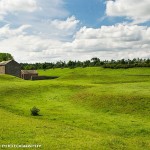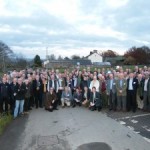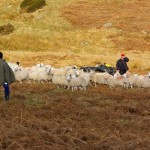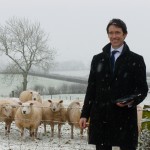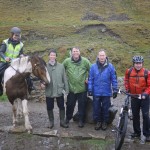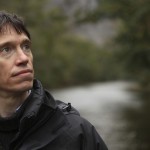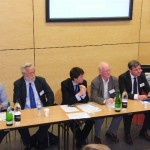A MEETING OF KINGS
Why did five kings meet, a thousand years ago, at Eamont Bridge? When you are driving up the A6, down the A66, does it seem a likely place for a Royal Conference? The Eamont Bridge page of Wikipedia is not much help. It reminds us that it was until 1974 the border between Cumberland and Westmorland, describes the standing stone and the neolithic ditch, and concludes with two slightly inaccurate sentences, recording that the Kings met. As for the area, Yanwath’s gets six short sentences (‘a population of 457, there is a primary school’); Brougham’s page refers to the ruined castle, and Roman fort. These things were well described over four hundred years ago, by the Elizabethan traveller Camden, and Wikipedia suggests we’ve learnt nothing since.
We had a better sense of our local areas, when we not only listened to our grandparents, but also had leisured Victorian clergymen who analysed Cumbrian dialect, sketched dark age monuments, and carefully transcribed the records of abandoned monasteries. Historians, up to about the time I was born, were still using their work. But our predecessors described Cumbria, in the iron age only as a sub-district of the vast Northern tribal territory of the Brigantes, based on York. The valley floor around the Eamont and the Eden, was presented as uninhabited marsh and forest land (they put the farms on the higher lighter limestone soils). They described it being conquered by the Anglo-Saxon kingdom of Northumbria, raided by Vikings, and then incorporated into England (and sub-leased to the Scottish king). Cumbria rarely seemed anything more than a side-show of a side-show.
But something was always missing in this picture. The Worcester Chronicler claims that in the summer of 926, King Athelstan of England held a meeting ‘aet eamotum’ – at Eamont – with the Kings of Scotland, of Wales, of Northumbria – and according to another chronicler – the King of Cumbria. Why? Part of the answer has been discovered by modern academics, but they haven’t informed the public. Their findings are in dozens of articles, hidden behind the pay-walls of academic journals, or in books not available in local libraries, or only for download on Kindle at eighty pounds a time. The scholars would like people to read what they are writing, the universities exist for the public good, but the rest of us are forced to surf between amateur conspiracies on Arthur and Merlin, and the dry unexpansive gobbets embedded in Wikipedia: a dark age indeed.
Some of the research – if you can access it – is exciting. First, they have established that Cumbria was not part of the Brigantes, it was its own pre-Roman tribal territory – an autonomous state, separate from those across the Pennines or the Solway; our tribe – as confirmed by a tombstone and a milestone near Eamont Bridge – had a name ‘the carvettii’. Then, through digging at Yanwath, it has become clear that settlement wasn’t only on the uplands. Instead, on the valley-floor was a network of dry-stone walls, arable fields, and stock stretching over three miles, and behind it at Clifton, a 7 acre site, impressive enough to have been a Royal capital. By the mid-1980s, two professors had published a one hundred and twenty page analysis of the farming, industry, communications, and trade of this tiny iron age community, whose boundaries were roughly those of Penrith and the Border. Then in 2005, another academic proposed there were not one, but two, iron age tribes in our area, the Carvetii of Cumberland were pro-Roman, the unnamed tribe of Westmorland were anti-Roman, and the Romans were based by Eamont Bridge to man the frontier.
The recent archaeology around Eamont Bridge also shows what happened, when the Romans left. They might have assumed that after three hundred years, British society would be transformed permanently in their image. But everything vanished – no coins, no formal pottery, not a single stone building are found in the next two hundred and fifty years, and the uplands were abandoned, returning to peat-bog and scrub. But what appears next is impressive – the Anglian cross at Lowther, which recent scholars have emphasised might mark (as at Bewcastle) a border, or (as at Hexham) a monastery. In Lowther’s case, perhaps both, because aerial photography has now shown on the river-bank by Ninkirk, under the legend of St.Ninian, lay an extensive set of ditches, and rectangular buildings, suggesting a dark age monastery.
The central problem from Camden to Wikipedia is the idea that the ‘real’ nations were England and Scotland, (with the addition of a part of Northern England called Northumbria). But Athelstan’s meeting, together with the archaeology, shows how Cumbria rather than being a subset of its neighbours, was a unique, and sometimes powerful actor, independent of what we now call England and Scotland, for almost seven hundred years. But none of this will come from Wikipedia. University publications should, therefore, be made free online; and the latest local history should be taught in local schools (as part of the National Curriculum Framework). A rigorous sense of local history is a healthy centre to our identity. I would like people in twenty years, when waiting for the lights at Eamont Bridge to understand why this hamlet was an international frontier – and the meeting place of kings.




